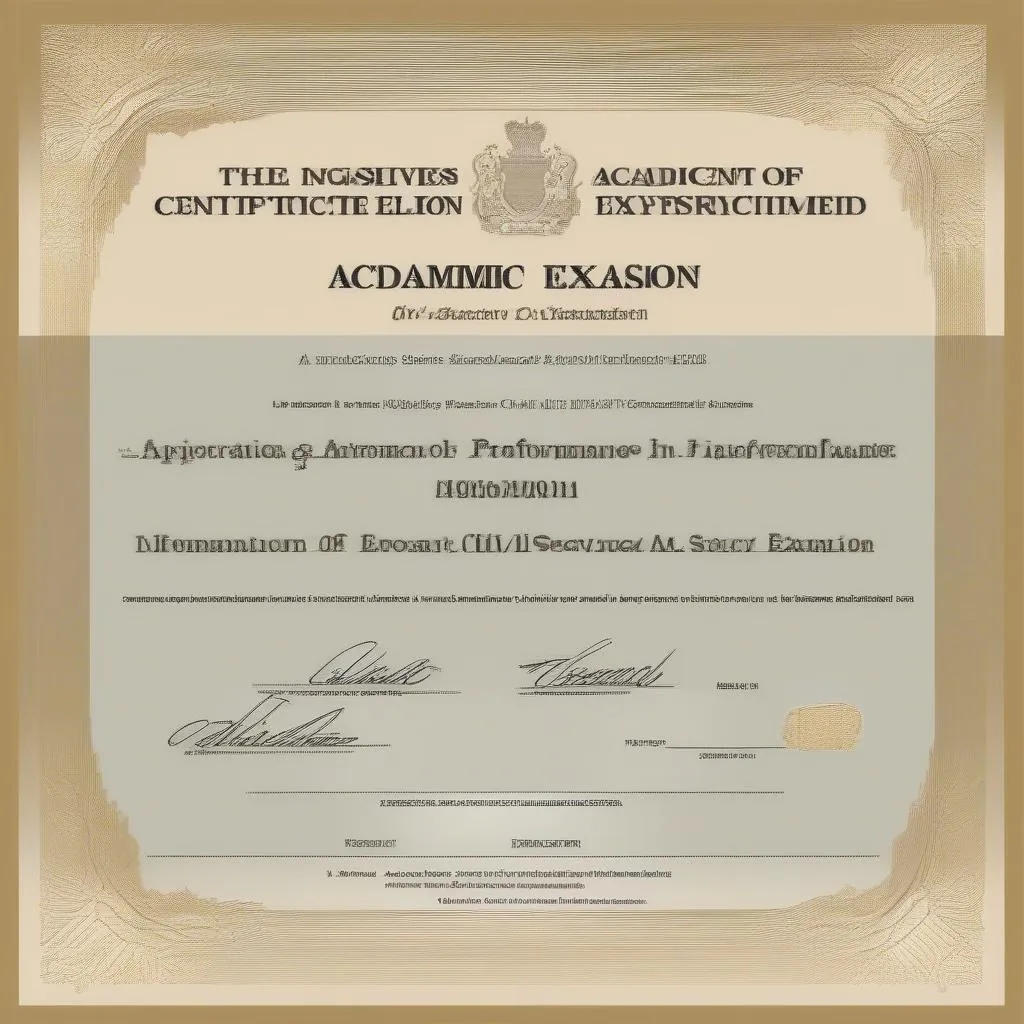“Persistence prevails,” as the old adage goes, and it holds true across all eras. To achieve success, you need to exert your utmost effort and have a suitable strategy. For civil service recruitment exams, academic scores are a crucial factor determining whether you get the “golden ticket.” So, how do you accurately and effectively calculate academic scores for civil service exams? Let “HỌC LÀM” reveal the secrets!
1. Understanding the Academic Score System for Civil Service Exams
1.1. What are Academic Scores?
Academic scores in civil service recruitment exams represent your academic performance throughout your education, from high school to university and postgraduate studies. These scores are converted into exam points based on specific conversion factors.
1.2. Academic Score Conversion Factors
Academic Score Conversion Factors:
- High School Level: Typically converted with a factor of 0.1-0.2 (meaning 1 academic point equals 0.1-0.2 exam points).
- University Level: Typically converted with a factor of 0.3-0.5 (meaning 1 academic point equals 0.3-0.5 exam points).
- Postgraduate Level: Typically converted with a factor of 0.5-0.7 (meaning 1 academic point equals 0.5-0.7 exam points).
Note:
- Academic score conversion factors can vary depending on the profession and recruiting agency. Therefore, you need to carefully research the specific recruitment exam information to know the exact conversion factors.
- The academic transcript used to calculate exam points must be the official transcript issued by the educational institution.
2. How to Calculate Academic Scores for Civil Service Exams
2.1. Calculation Formula
The formula for calculating academic scores in civil service exams is usually expressed as follows:
Exam Score = (Grade Point Average x Conversion Factor) + (Foreign Language Score x Conversion Factor)
- Grade Point Average (GPA): The average of all subjects in your academic transcript.
- Conversion Factor: The conversion factor corresponding to your education level.
- Foreign Language Score: Your foreign language exam score (if applicable).
- Foreign Language Score Conversion Factor: The conversion factor for the foreign language exam score.
2.2. Illustrative Example
Suppose you have a GPA of 8.0, a conversion factor of 0.4, a foreign language exam score of 7.0, and a foreign language score conversion factor of 0.2. Your academic score would be calculated as follows:
Exam Score = (8.0 x 0.4) + (7.0 x 0.2) = 4.2
3. Tips to Improve Your Academic Scores
3.1. Diligent Study Habits:
- Develop a Scientific Study Plan: Create a detailed plan, dividing your time reasonably for each subject and study phase.
- Proactively Seek Knowledge: Don’t just learn from textbooks; actively seek information and reference materials from various sources, such as the internet, newspapers, online courses, etc.
- Practice Regularly: Continuously practice and apply the knowledge you’ve learned to consolidate and enhance your application skills.
- Learn from Others: Proactively exchange and learn from friends, teachers, and experts in your desired field.
3.2. Participate in Extracurricular Activities:
- Engage in Extracurricular Activities: Participating in extracurricular activities and professional competitions will help you cultivate knowledge and skills, while also creating opportunities for personal development.
3.3. Enhance Soft Skills:
- Develop Soft Skills: Soft skills such as communication, teamwork, and problem-solving are crucial factors for success in any field.
- Build a Professional Image: Always demonstrate professionalism, confidence, and dynamism in all activities, from communication style to attire.
4. Important Notes When Calculating Academic Scores
- Carefully Review Recruitment Information: Thoroughly read the recruitment information to understand the regulations, selection criteria, academic score conversion factors, etc.
- Keep All Necessary Documents: Carefully preserve all academic-related documents, such as transcripts, foreign language certificates, and certificates of extracurricular activities.
- Double-Check Your Transcript Before Submitting: Review your transcript carefully before submitting your application to avoid errors.
5. INSPIRATIONAL STORY
There’s a story about Minh, a young man who dreamed of becoming a teacher. He worked incredibly hard in his studies, consistently achieving high scores in all subjects. In the teacher recruitment exam, Minh’s academic scores were calculated with a high conversion factor, helping him achieve an impressive total score and secure a teaching position at a prestigious school. Minh proved that “Diligence can compensate for lack of innate talent,” and academic scores are the result of relentless effort.
 Sample academic transcript for civil service exam application
Sample academic transcript for civil service exam application
 People collaborating to enhance soft skills
People collaborating to enhance soft skills
 Performance evaluation process for civil servants
Performance evaluation process for civil servants
6. Expert Advice
“To succeed in the civil service recruitment exam, academic scores are a crucial factor. Strive your best in your studies, cultivate knowledge and skills, and you will achieve the results you desire. Remember that academic scores are just one part of the recruitment process; the most important factors are competence, qualities, and suitability for the job position.” – Prof. Dr. Nguyen Van A, Education Expert
7. Conclusion
In conclusion, calculating academic scores for civil service exams is an important part of the recruitment process. Dedicate yourself to your studies, enhance your knowledge and skills to achieve the highest possible results. You can learn more about effective study methods and soft skill development on the “HỌC LÀM” website. Best of luck to you!